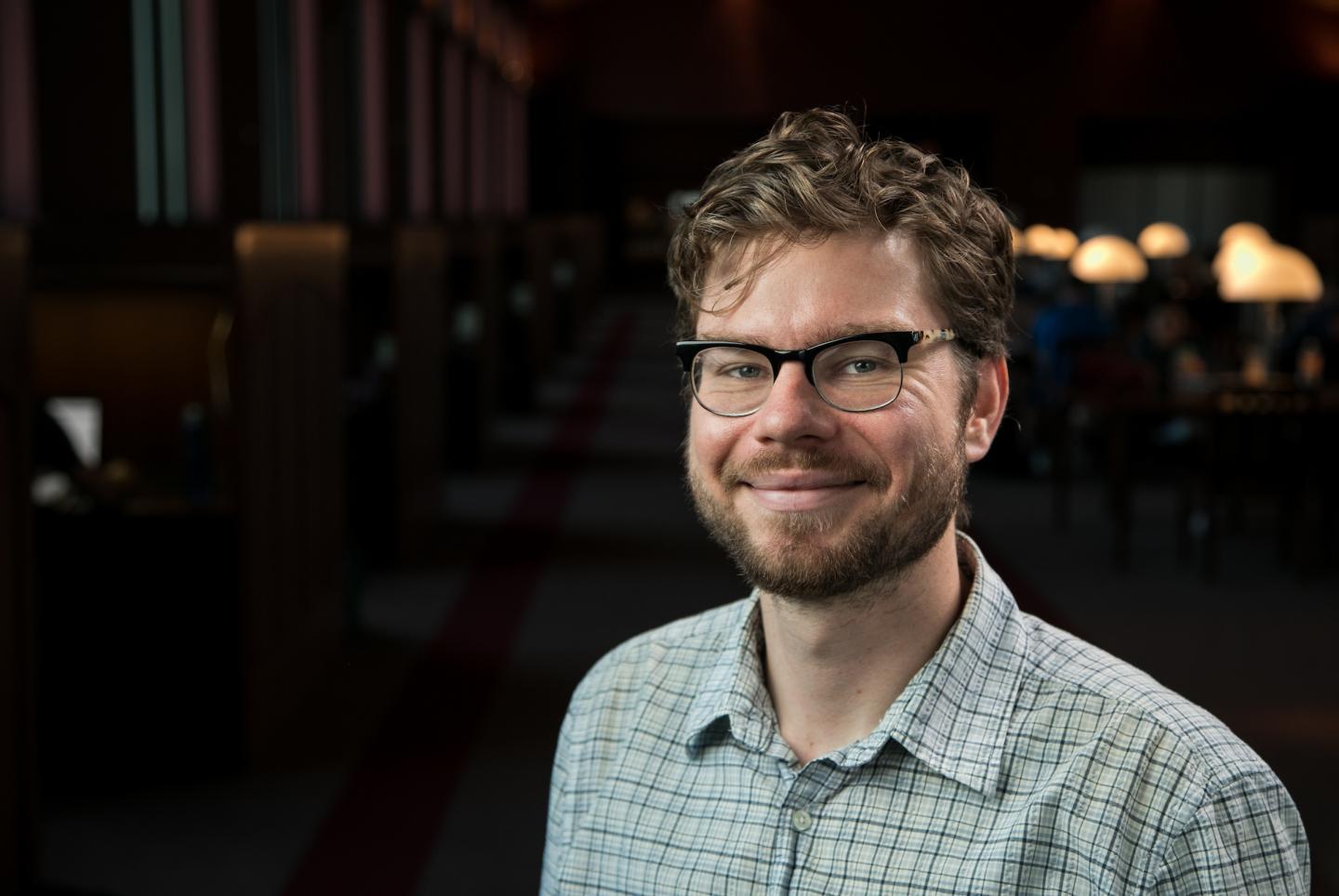
Credit: Virginia Tech
Frank O. Aylward, an assistant professor with the Department of Biological Sciences in the Virginia Tech College of Science, has been awarded a Simons Early Career Investigator in Marine Microbial Ecology and Evolution Award.
The three-year, $540,000 grant will help Aylward to understand evolutionary trends in prokaryotes and the roles they play in carbon and nitrogen cycling, and other biogeochemical processes that are vital to the Earth’s climate. The work, focused on computational genomics, will look at how these microbes have evolved in the ocean during the course of billions of years, and how they may change again.
“By understanding how microbes have evolved to live in the ocean, we can begin to predict how they might respond to future changes in climate and ocean acidification,” Aylward said. “Many microbial groups live in the nutrient depleted waters of the oceanic gyres of the globe, and these environments are expanding due to climate change. We want to learn what these microbes do and how they evolved into that environment, since they will be more abundant in the future.”
The Simons Foundation division of Life Sciences seeks to advance research on fundamental questions in biology, currently focuses on origins of life, microbial oceanography, microbial ecology and evolution, and support of early career scientists, according to the group’s website.
Aylward is also an affiliate faculty member of the systems biology program, part of the Academy of Integrated Science within the College of Science, and a member of the Global Change Center at Virginia Tech, part of the Fralin Life Sciences Institute. He researches microbial ecology and diversity, and genomics and metagenomics, including how microbial communities are shaped and function.
Aylward previously won a 2018 Alfred P. Sloan Research Fellow in Ocean Science worth $65,000, to fund personnel in his lab and to purchase a server for computational genomic research.
He earned a bachelor’s degree in in biochemistry from the University of Arizona in 2008 and a doctoral degree in microbiology from the University of Wisconsin-Madison in 2013, with postdoctoral research work following at The Massachusetts Institute of Technology and University of Hawaii at Mānoa.
###
Media Contact
Steven Mackay
[email protected]
Original Source
https:/




